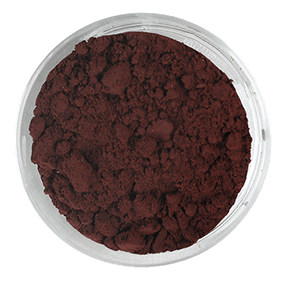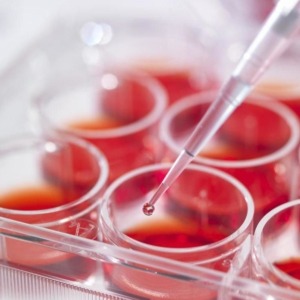General Details
Product name: Astaxanthin Powder (Haematococcus Pluvialis Extract)
Plant latin name: Haematococcus pluvialis powder
powder
Product specification: Astaxanthin: 1.5%, 2.0%, 2.5%, 3.0%, 3.5%, 4%, 5%
Appearance: Dark Red Powder
Health Benefits
Antioxidation
Astaxanthin from haematococcus pluvialis powder is a potent antioxidant, it absorbs the excited energy of singlet oxygen onto the carotenoid chain, leading to the degradation of the molecule, preventing other molecules or tissues from being damaged.
It prevents the chain reaction production of free radicals from the degradation of poly-unsaturated fatty acids, so it
- dramatically accelerates the degradation of lipid membranes
- protect membranous phospholipids and other lipids against peroxidation
- The antioxidant activity of astaxanthin is stronger than vitamin E and b-carotene. This property is important in protection against photooxidation,
- inflammation,
- cancer,
- age-related diseases,
- immunity enhancement,
liver function and heart, eye, joint and prostate health.
Photo Protection
Exposure to light leads to production of singlet oxygen and free radicals. Astaxanthin from haematococcus pluvialis powder protects tissues against UV-light mediated photo-oxidation.
It is more effective than b-carotene and lutein at preventing UV-light photooxidation. That is why astaxanthin plays an important role in eye and skin health.
Eye Health
Main reasons of visual impairment and blindness are age-related macular degeneration (AMD) and age-related cataracts. Both are related to light-induced oxidative processes within the eye. Carotenoids like lutein and zeaxanthin are in the macula of the eye. A dietary intake of antioxdants reduces risk for both nuclear cataracts and AMD.
The UV-light protection effect of astaxanthin from haematococcus pluvialis powder is better than lutein and zeaxanthin. Studies showed that astaxanthin can cross the blood–brain barrier, and deposit in the retina of mammals. The retinal photoreceptors of rats fed astaxanthin were less damaged by a UV-light, it recovered faster than rats not fed astaxanthin. astaxanthin deposition in the eye can protect eyes against UV light and oxidation of retinal tissues.
Skin Health
Excessive exposure of unprotected skin to sunlight leads to sunburn, photo-induced oxidation, aging, and carcinogenesis. Typical dietary antioxidants can reduce such damage, astaxanthin supplementation protects the retinal photoreceptors in the eyes of rats.
Astaxanthin protects against UV-induced photooxidation, it works better than b-carotene and lutein. These findings indicate that astaxanthin has a potential as an oral sun-protectant.
Heart Health
High levels of LDL-cholesterol are related with an increased risk of atherosclerosis. HDL blood levels are indicative of protection against atherosclerosis. Oxidation of LDL contributes to the development of atherosclerosis, we can reduce the risk of atherosclerosis by antioxidant supplementation.
In an in vitro study with human subjects, people ingest astaxanthin per day for two consecutive weeks, the result showed astaxanthin protected LDL-cholesterol from oxidant.
Astaxanthin supplementation helps
- increase blood levels of HDL
- benefit heart health by adjusting blood levels of LDL and HDL cholesterol
- reduce inflammation related with coronary heart disease
Anti-cancer
Studies proved the anti-cancer activity of natural astaxanthin in mammals. Astaxanthin protected mice from carcinogenesis of the urinary bladder, it reduced the incidence of chemically induced bladder carcinoma. 
The protective effect of astaxanthin was stronger than b-carotene, it significantly decreased the incidence of induced colon cancer in those rats fed natural astaxanthin.
Dietary astaxanthin is also effective in fighting mammary cancer, it reduces growth of induced mammary tumors by 50%. Astaxanthin inhibits the enzyme 5-a-reductase, which is responsible for prostate growth. astaxanthin can fight benign prostate hyperplasia and prostate cancer.
Liver Detoxification
The liver is a complex organ in which intense catabolism and anabolism take place. Liver functions include active oxidation of lipids to produce energy, detoxification of contaminants, and destruction of pathogenic bacteria, viruses and of dead red blood cells. These functions produce a lot of free radicals and oxidation byproducts. It is important to protect liver cells against oxidative damage.
Astaxanthin protects mitochondria from rat liver cells against lipid peroxidation. It induces xenobiotic metabolizing enzymes in rat liver, it is a process preventing carcinogenesis. Astaxanthin can induce xenobiotic metabolizing enzymes in the lung and kidney.
Related Articles
- Health Benefits of Natural Astaxanthin
- The Amazing Effects of Natural Astaxanthin
- Natural Astaxanthin Applicable and Inapplicable Group
- Natural Astaxanthin Increases High Density Lipoprotein
- Astaxanthin can Effectively Prevent Cerebral Reinfarction
- The Super Antioxidant Activity of Natural Astaxanthin
- Natural Astaxanthin on Immunity Enhancement
